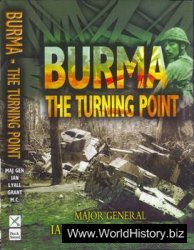Adulterine - A castle erected illegally. Most were built during the reign of King Stephen.
Allure-A walkway around the top of a wall.
Arrow slits - Narrow openings in a wall for firing out. Artefact - Item of primary evidence, such as an arrow head dug up by archaeologists.
Ashlar - Hewn limestone quarried in Lincolnshire. Aumbry - Cupboard.
Bailey - Outer courtyard or ward of a castle.
Ballista - Roman spring gun firing arrows or javelins. Barbican - Outer defence of a castle, usually a gateway. Baron - A member of the ruling class of medieval England. The title of baron was normally hereditary but the term is often applied to anyone from an abbot to an earl, from a knight to a sheriff. Sometimes knights with substantial land holdings arc referred to as minor barons. Bastion - Tower at the edge of a curtain wall, used primarily as a watch or guard tower. Normally found at corners.
Battlements - Parapets with crencllations and merlons (raised part) at top of a wall or building.
Black Death - Epidemic killing a third of the country’s population between 1348 and 1349.
Brass - Image of a deceased person made of a brasslike metal. The oldest brass in Suffolk is at Acton to Sir Robert de Bures of 131'5.
Burgess - Townsperson.
Buttress - A projection of wood or stone used to strengthen a wall.
Castle - A fortified place.
Chronicle - An account written of events as they happened. Citadel - A heavily fortified military castle.
Constable - Person appointed to be custodian of a castle and responsible for law and order in an area. Crenellation - Battlements. The right to crencllate is the right to make a building into a castle. Permission could only be granted by a monarch.
Crenels - The open spaces of battlements.
Crusades - Military campaigns to recapture the Holy Land. There were seven crusades between 1096 and 1170. Richard 1 was involved in the third crusade.
Curtain wall - Castle wall which encloses a bailey or the entire castle.
Domesday Book - Census of England carried out in 1086. Suffolk is contained in the Little Domesday Book which also covers Norfolk and Lincolnshire.
Donjon - The keep.
Drawbridge - A wooden bridge capable of being raised or lowered.
Dungeon - A castle prison, could be under the keep or a tower or in a separate building in a bailey.
Enclosure - A bailey surrounded by a wall or fence, usually with an external ditch.
Feudal system - Norman system of control with peasants
Doing homage to their under-tenant, normally a knight, who did homage to their tcnant-in-chicf, usually a baron or abbot, who did homage to the King.
Forebuilding - A building that projects from a keep or an entrance. Usually with internal stairs.
Fosse - Ditch.
Freemen - Peasants who received wages for their work and could move around.
Garderobe - A clothes cupboard with a toilet exiting directly into the open air.
Garrison - Either a group of soldiers who guard a castle or lodgings for troops.
Lionours - The right to a number of estates and privileges. There were three in Suffolk: Clare, Haughley and Eye. Iceni - Celtic tribe of Suffolk and Norfolk in Roman times. Their most famous leader was Boudica.
Keep - The central, strongest tower of a castle like Orford. Knight's fees - The fee payable to the king by a tenant-in-chief cither in money or actual military service.
Latrine - A toilet connected to a chute.
Loophole - Slits in a wall, from which arrows could be fired. Maison forte - Manor house.
Manor house - Fortified private residence, usually with a curtain wall. Manor houses arc generally smaller than castles and could be built without the permission of the king. Merlon - The solid part of battlements.
Moat - Flooded ditch.
Motte - A mound, cither natural or man-made.
Murder holes - Holes through which arrows could be fired or boiling oil etc poured on to attackers.
Palisade - A strong wooden fence or wall built to enclose a bai ley or defensive site.
Parapet - A protective wall built along the top of a walkway on a wall.
Peasants’ Revolt - Uprising in 1381 by villeins demanding to become freemen and receive wages.
Pipe Rolls - The list of expenses for a monarch.
Piscina - Small stone sink in a chapel for washing communion vessels.
Portcullis - A vertical sliding grating of iron lowered or raised between grooves.
Primary source - Historical document, artefact, building etc. offering contemporary, first-hand evidence, c. g. Domesday Book.
Ramparts - A stone wall or earthen embankment built as an extra defence outside the castle walls.
Ringwork - Circular embankment used to protect an internal dwelling or dwellings. Usually surmounted by a fence.
Secondary source - Evidence which is not of the time that is being studied, e. g. this book.
Solar - Bedroom or living room.
Stockade - Enclosure usually surrounded by wooden stakes.
Turret - A small tower built on to a larger tower or wall. Villeins - Common villagers who received payment in goods and were directly under the control of their over-tenant.
Ward - The inner courtyard of a castle or an open space between walls.
Wars of the Roses - Civil war between the Houses of Lancaster and York. Started in 1455 during the reign of Henry VI and ended with the defeat of Richard III at the Battle of Bosworth.




 World History
World History









